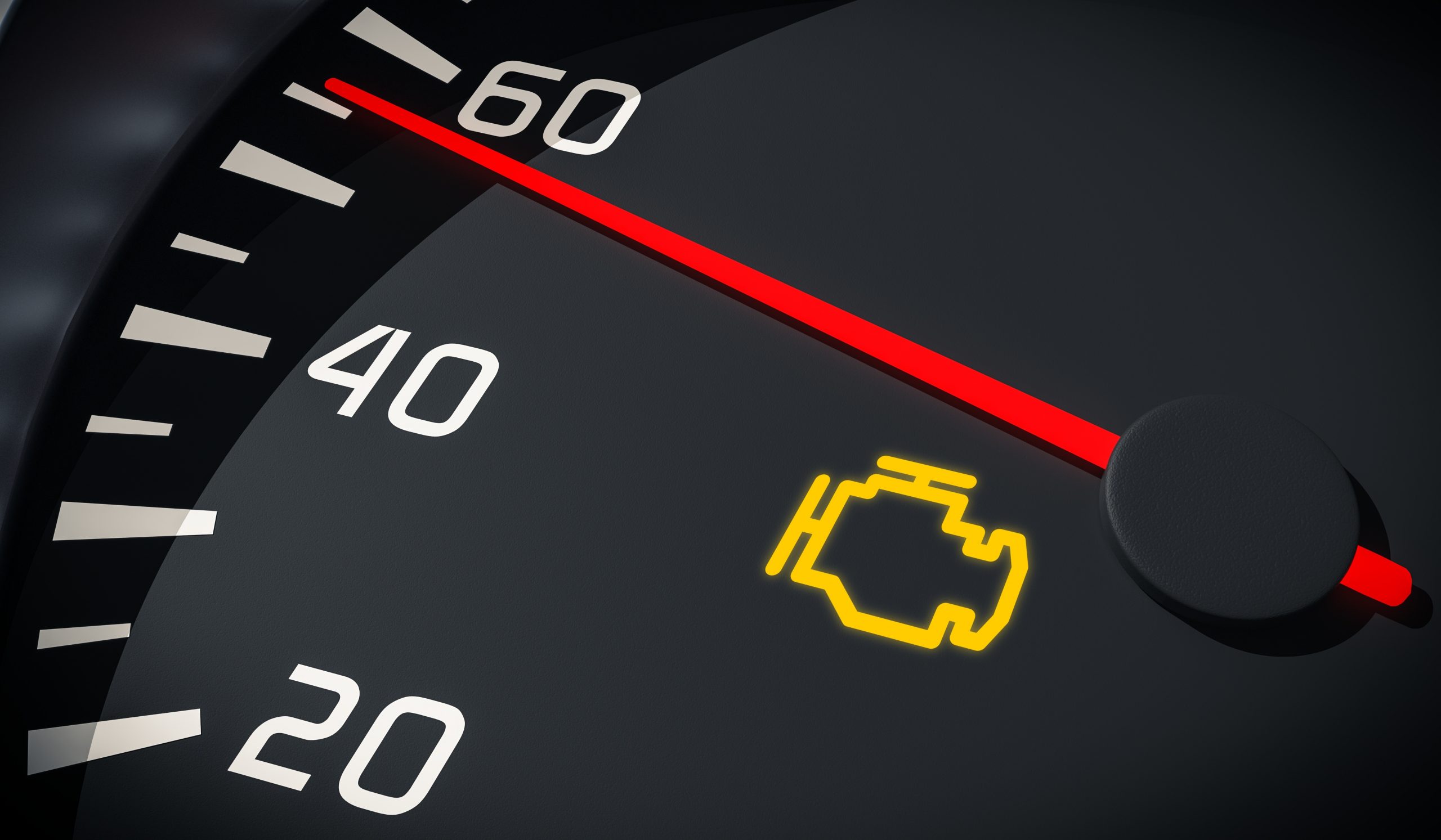

Anyone who has ever had the Check Engine indicator light up on their dashboard probably went into full blown panic. That’s because the Check Engine light is a critical warning of a problem with your vehicle’s most important component, the engine! Before you panic, read on to learn more about this warning indicator and what may cause it to suddenly appear on your dashboard.
What Do You Do?
Unlike other non-essential warning lights, the Check Engine light is giving a preemptive warning that something small may develop into something big, especially if the warning is ignored.
So, what should you do if this warning appears while driving your vehicle?
Never ignore a Check Engine light – the problem won’t go away and it could escalate into something more serious:
- If this is the first time the light has appeared on your dash and it is NOT blinking, there is no need for panic. While critical, in most cases you can continue driving but need to address the problem with a service professional without delay.
- If the light is blinking, then you should safely pull your vehicle over to the side of the road immediately and contact roadside assistance. You do not want to continue driving your vehicle as it could result in further damage.
Why Are You Getting This Warning?
The Check Engine warning light is tied to your vehicle’s onboard computer, referred to as the Electronic Control Module (ECM). The ECM is continuously monitoring your engine and the various sensors that protect your engine’s components. When it reads an error or failure in one of those sensors, this triggers a warning light on the dashboard.
While there are a variety of problems that may trigger the Check Engine light, we describe four of the more common ones you may experience with your vehicle.
| Problem Area | Description |
|---|---|
| Catalytic Converter | - Your vehicle’s catalytic converter is an emission control device that oxidizes harmful gases coming from your exhaust into less toxic ones before being emitted to the environment. - Catalytic converters are designed to last the lifetime of a vehicle, but can become damaged as a result of poor vehicle maintenance and upkeep. - If your catalytic converter is not functioning properly, it may illuminate the Check Engine light. - Catalytic converters usually need to be replaced when damaged and can be quite expensive, due to the metal coatings that are used in the oxidation process. |
| Oxygen Sensors | - Oxygen and fuel are two important elements that enable your combustion engine to work efficiently. - There must always be a proper mixture of oxygen and fuel in your engine, that is why your vehicle is equipped with various oxygen sensors. - The two sensors that may trigger a Check Engine light when they are malfunctioning are the O2 Sensor and the Mass Airflow Sensor. The O2 Sensor measures the amount of oxygen in the vehicle exhaust while the Mass Airflow Sensor measures the oxygen mix in the combustion engine. |
| Fuel Tank | - If your fuel tank cap is loose, worn, or not screwed on properly, this could trigger the Check Engine light. - The gas cap is designed to protect the fuel inside your gasoline tank and prevent the intrusion of moisture or air. - Since the gas cap is a component that is frequently removed by a driver, it sometimes can be screwed on incorrectly and trigger the Check Engine light. - The easiest way to address the loose gas cap is to remove it and screw it back on so that it is securely fitted in the tank. - Once the gas cap is placed on the tank properly, the Check Engine light should distinguish. However, sometimes the seal around the cap may be worn and will require replacement of the gas cap. - Always use the specific replacement that is recommended by your vehicle manufacturer. |
| Spark Plugs, Wires, or Ignition Coils | - Your vehicle’s spark plugs are what ignite the internal combustion engine, along with other vital components. - When the plugs are dirty or loose, this may impede the ability for your engine to start or run smoothly. - Bad spark plugs can trigger the Check Engine light, as well as the wiring that comes from the Ignition Coils (the components that create electricity for the spark plugs) and even the Ignition Coils themselves. - If the plugs, wires, or coils are determined to be the issue they can be replaced. |
There are many other potential reasons for a Check Engine light, which is why it is important that you have your vehicle checked out by a service professional. Contact the service professionals at Colonial Service Station to schedule a diagnosis of your problem. We can inspect your vehicle and make recommendations for repairs. Don’t ignore the warnings – contact us today.
